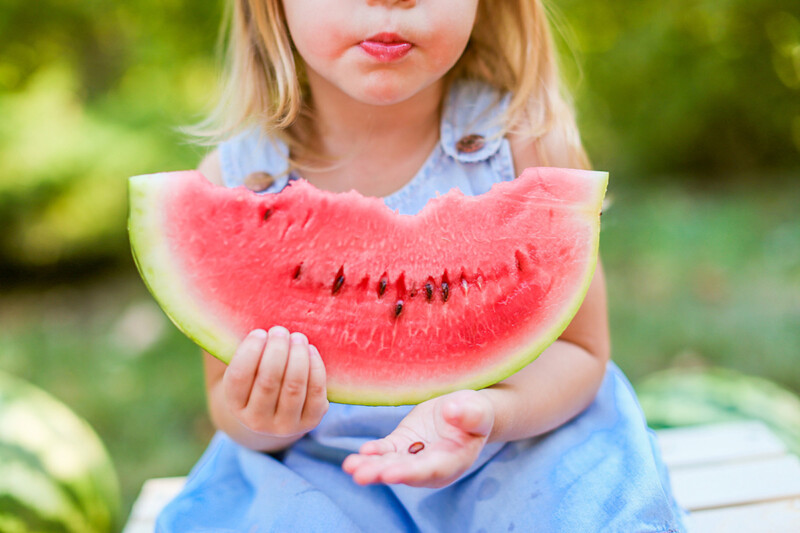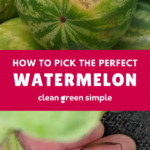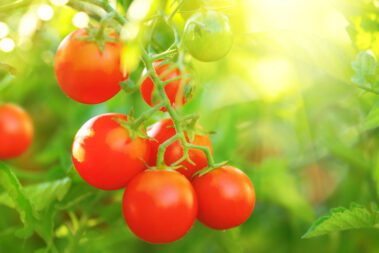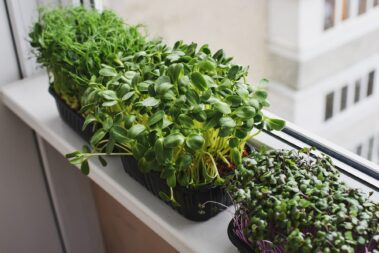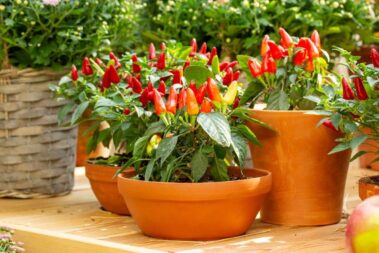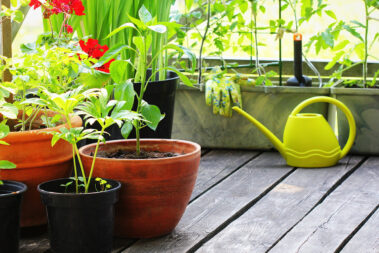Nothing says summer like biting into a piece of juicy, sweet watermelon. But getting that long-sought-after summer experience of enjoying the perfect piece of melon means being able to pick the perfect fruit in the first place.
Whether you’re shopping for melons or picking them straight out of the garden, here’s everything you need to know to pick the perfect watermelon and ensure your summer picnic or barbeque is everything you dreamed it would be.
Table of Contents
How to Pick the Perfect Watermelon In the Produce Aisle
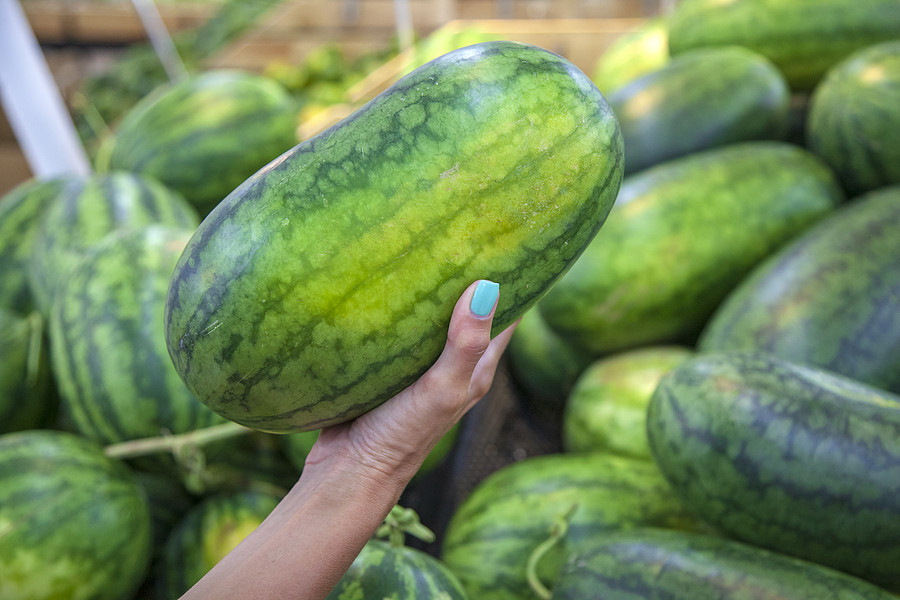
Watermelon season begins in August, but the fruits tend to be the best and most plentiful in September. If you can wait, you’ll often be rewarded. But even if you can’t wait, the tips below will help you find the sweetest watermelon your grocery store or farmer’s market has to offer.
1. Choose the Heaviest One
No matter what size watermelon you are angling for, pick the heaviest in that size range. Heavy means the fruit is bursting with water, and lots of water means more sweet pink flesh to enjoy.
2. Give It a Tap
Melons with plenty of pink, juicy flesh will sound hollow when you tap on them. Any fruit that sounds solid, dull, or tinny when tapped likely has a thick inedible rind, less sweet flesh, and was probably picked before it had a chance to ripen up.
3. Check the Spot
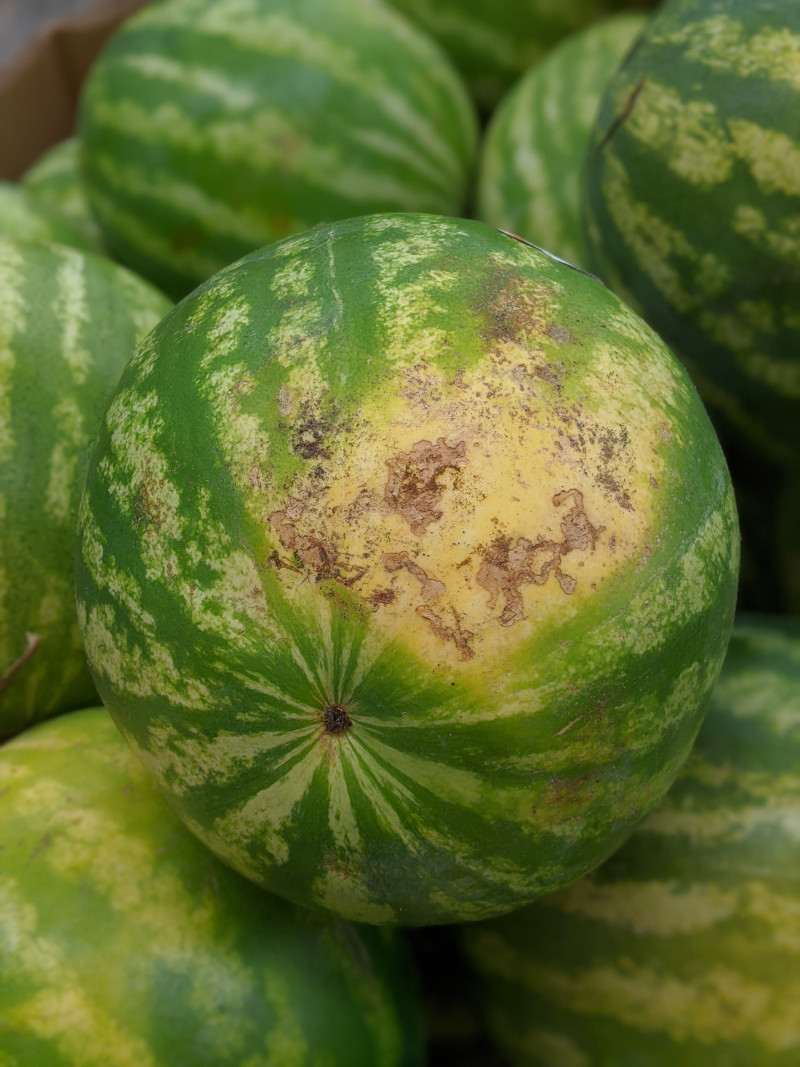
All melons will have a slight discoloration on one side where the fruit made contact with the ground. This is known as a “field spot.” As the watermelon ripens, this spot becomes more and more yellow. The creamier and deeper yellow the spot, the riper the melon. Any watermelon with a pale or white discoloration was picked before peak ripeness and should be left for the next unassuming consumer.
4. Look for Symmetry
Melons that received consistent watering will be juicier than those that had to deal with intermittent dry periods. You can spot well-watered melons by their smooth, uniform shape (circular or oblong) and a lack of dips and bumps.
5. Don’t Pick the Pretty One
While symmetrical is good, shiny is not. Dull watermelons are riper than shiny ones and will taste much better. And don’t shy away from melons with scabby scars on the side with the yellow spot. These are actually caused by the sugar leaching out of the fruit and indicate a sweeter than normal melon (the photo above is a good example).
How to Pick a Perfectly Ripe Watermelon From the Garden
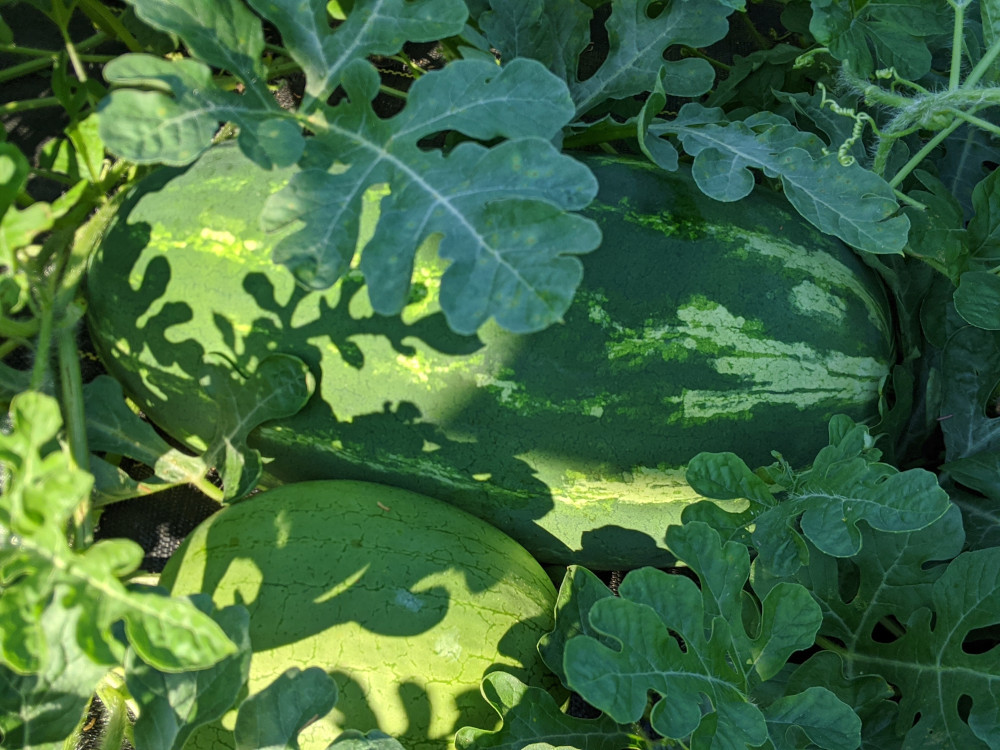
If you’re shopping for watermelon, you’re going to be limited by the quality of the selection provided by the store. But if you’re lucky enough to grow your own melons, your odds of getting a perfectly ripe, beautifully sweet treat are much higher.
This process may take a little patience, but it is well worth it in the end.
1. Get Familiar with Your Fruit
As you count down the days until your watermelon should be ripe, it’s a good idea to get familiar with what the fruits look and sound like. Unripe fruits will be shiny, sound dull or tinny when tapped on, and the blemish or field spot where their skin has rested on the ground will be white or pale in color. Commit these sights and sounds to memory and be on the lookout for any changes.
2. Show Some Tough Love
Once your melons have reached their mature size, but before they start to show other signs of ripening, begin to withhold water. Fruits that are subjected to a touch of drought before picking will have a higher concentration of sugar and taste way sweeter. Water just enough to keep your vines and leaves from wilting, but not any more.
3. Check Off the Boxes
A ripe melon will change from shiny and bright to a dull green, the field spot will change from pale to a creamy or straw-yellow, and the sound they make when you tap on them will be deep and hollow instead of dull. Once your watermelon shows all of these changes, it might be ready to pick and enjoy!
4. Look for a Brown Tendril
The most surefire way to tell if a watermelon is ripe and sweet is to check for a dry, brown tendril, or “curly q,” closest to the main stem of the watermelon. When you see that, it’s ready to harvest.
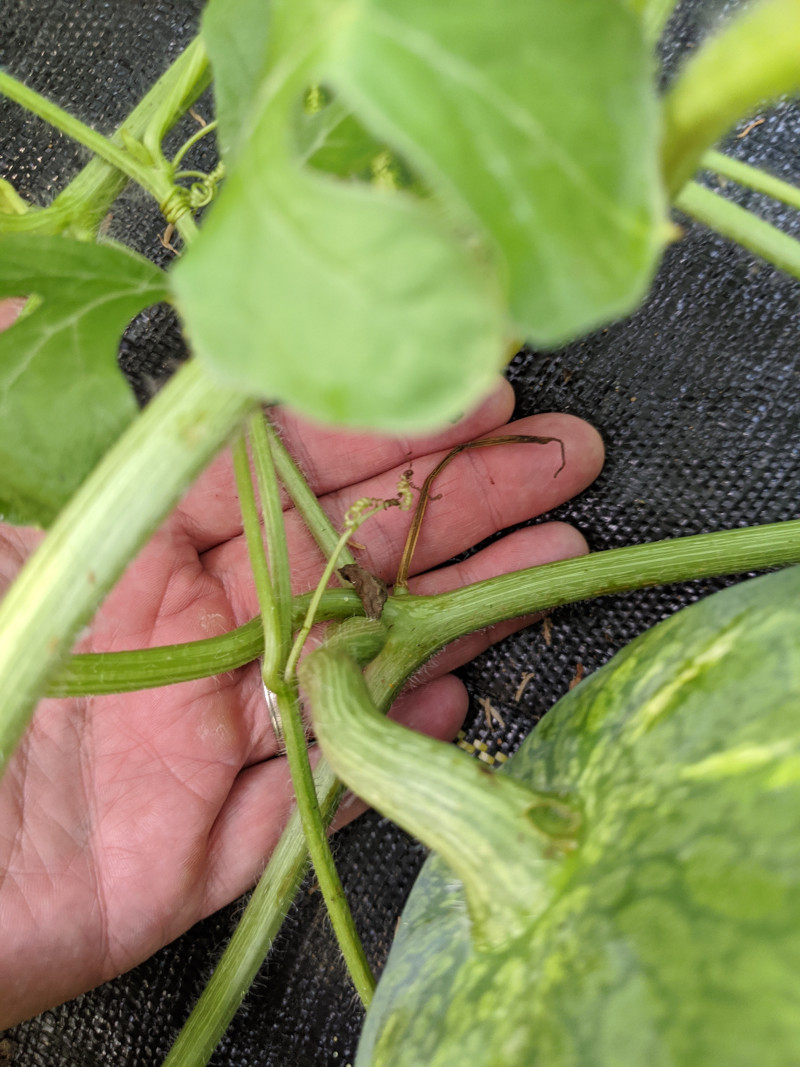
5. Be Ready for More
Melons will typically all ripen within about a two-week span. So, once your first fruit hits perfection, expect the rest to be ready pick soon afterward.
Expert Tip: How to Store a Ripe Watermelon
Once you have the perfect watermelon, you don’t want to chance having it spoil on you.
For grocery store melons, it can be hard to know how long ago they were picked, so the sooner you can use them, the better. Most will stay fresh for up to a week either in the fridge or on the counter. Leaving the melon on the counter will allow it time to get even sweeter, but if your house tends to get hot, move it to a cool basement or the fridge to avoid it overrippening.
Freshly picked garden or farmer’s market melons will typically be fine on the counter in a cool room for up to two weeks.
Once a watermelon is cut, use plastic wrap or, even better, a beeswax wrap to cover the pink flesh and pace the leftovers in the fridge. Leftover watermelon should keep for around three days.
FAQ
How can you tell if a watermelon is sweet or juicy?
To tell if a watermelon is sweet or juicy, test its weight and look at the field spot. Heavy watermelons are the juiciest, while heavy melons with large yellow field spots surrounded by dull green skin will be the sweetest.
What is the webbing on a watermelon?
Webbing on watermelon, which looks like scaly, brown, web-like scars on the skin, is caused by tissue damage during pollination. The more webbing a watermelon has, the more the flower was pollinated and the sweeter it will taste.
What are some signs of a bad watermelon?
Bright, shiny melons with small white field spots are under-ripe and not worth picking. Also, be on the lookout for melons that sound overly hollow when tapped and have juice leaking out of the stem end. This is a sign the watermelon is rotting and filling with air and will likely explode when cut open.
Our Favorite Watermelon Recipes
Once you get your perfectly ripe watermelon from the field or store, you’ll need to put it to use.
One of my favorite things to do with a watermelon is make it into cucumber watermelon salsa. This fresh and zesty salsa pairs perfectly with tacos and warm summer nights. It works especially well with our crispy cauliflower tacos.
Watermelon is also delicious in fruit salads, greens salads, smoothies, and daiquiris. You can even grill your watermelon slices for an extra special summer treat.
Love these recipe ideas and harvesting tips? Don’t forget to sign up for our newsletter to receive more simple, green inspiration delivered to your inbox. Find the fillable form at the bottom of this page.
How Do You Pick the Best Watermelon?
Picking the best watermelon is all about the weight, look, and sound. A ripe, sweet watermelon will be heavy, have dull green skin with a large yellow field spot, and sound hollow when you tap it.
Have more questions about picking ripe watermelons from the field or at the store? Post them along with any other tidbits in the comments box below.
- How to Pick the Perfect Watermelon For a Sweet Summer Treat - April 10, 2024
- Future Kind’s Foundations: A Multivitamin Made for Vegans - December 5, 2023
- Does Nutritional Yeast Go Bad? - November 28, 2023

